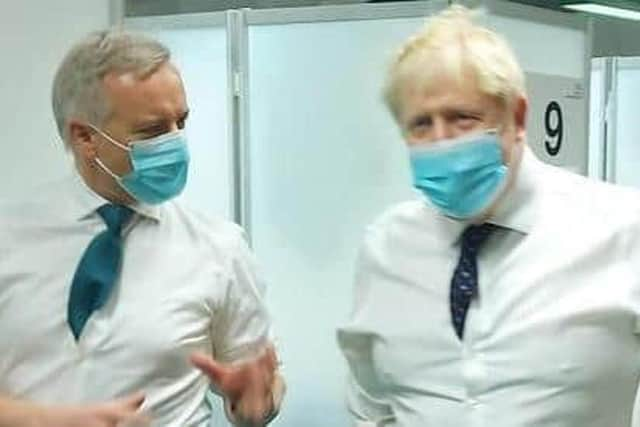Aylesbury Vale MPs skip Parliament vote on the Boris Johnson privileges committee report
and live on Freeview channel 276
Both Aylesbury Vale MPs did not vote on the privilege committee motion deciding the fate of former Prime Minister Boris Johnson.
Last night (19 June) Mps were called on to approve or block the report stating the ex-PM misled Parliament.
Advertisement
Advertisement
Aylesbury MP Rob Butler and Buckingham MP Greg Smith were among the 225 Conservative Party members who did not cast a vote.


Overall, 354 MPs voted through the report that concluded the former Conservative leader lied to politicians about Partygate. Where the then Prime Minister was found to have broken lockdown rules during the pandemic, by attending parties.
Just seven MPs voted to block the report. Many current cabinet members withheld from voting including Prime Minister Rishi Sunak.
Whilst both Bucks-based politicians condemned the 58-year-old’s actions, they cited harshness of the punishments when explaining their decision not to vote.
Advertisement
Advertisement
The committee, which was made up of four Conservative and three Labour representatives, recommended that Mr Johnson should have served a 90-day suspension from the House of Commons.


However, the former London Mayor resigned days before the verdict was made public, otherwise he would be facing a by-election in his constituency of Uxbridge due to the length of his suspension.
Mr Butler said: “It should be remembered that this was not a referendum on Mr Johnson's premiership, his handling of Covid, or his general performances in the House of Commons.
“The vote was about whether or not MPs agreed with the Privileges Committee – both its conclusions and its proposed sanctions.
“I read the entire report very carefully.
Advertisement
Advertisement
“There were aspects with which I agreed, and aspects with which I disagreed.
“I accept that Mr Johnson misled the House of Commons, however I was not convinced by the Committee’s reasoning that led it to the conclusion that this was deliberate; nor did I feel there was sufficient explanation as to why such a severe sanction was justified.
“In light of my split views about different elements of the report, I made a conscious decision to abstain.”
Mr Smith offered similar reasoning to Aylesbury’s MP, but also raised questions over the standards that Parliamentary Committees are held to.
Advertisement
Advertisement
He said: “My decision not to cast a vote in the Division on the Privileges Committee report was thought through and deliberate. I had no intention of standing in the way of the motion passing, but I decided once I had read the report not to cast a vote.
"This is for multiple reasons. Firstly, Boris Johnson has already gone. He hasn’t been Prime Minister since last September and has now even resigned his seat in Parliament.
"The punishment proposed seemed to me overly draconian and vindictive given these facts. Secondly, I worry that the burden of proof in the case heard by the Privileges Committee—and set by the same—does not confirm to UK judicial norms. Whilst Parliamentary committees are not required to conform to judicial practice, it does set a precedent that those under investigation by a committee can be held to a different standard to that based on which any court in the land would be able to convict."